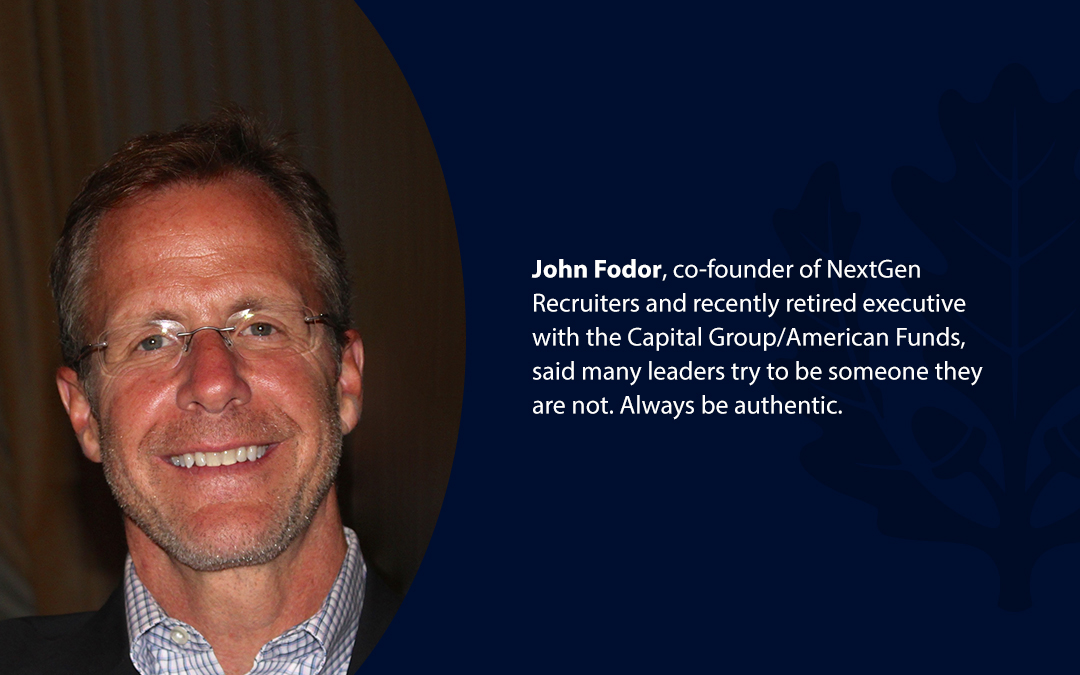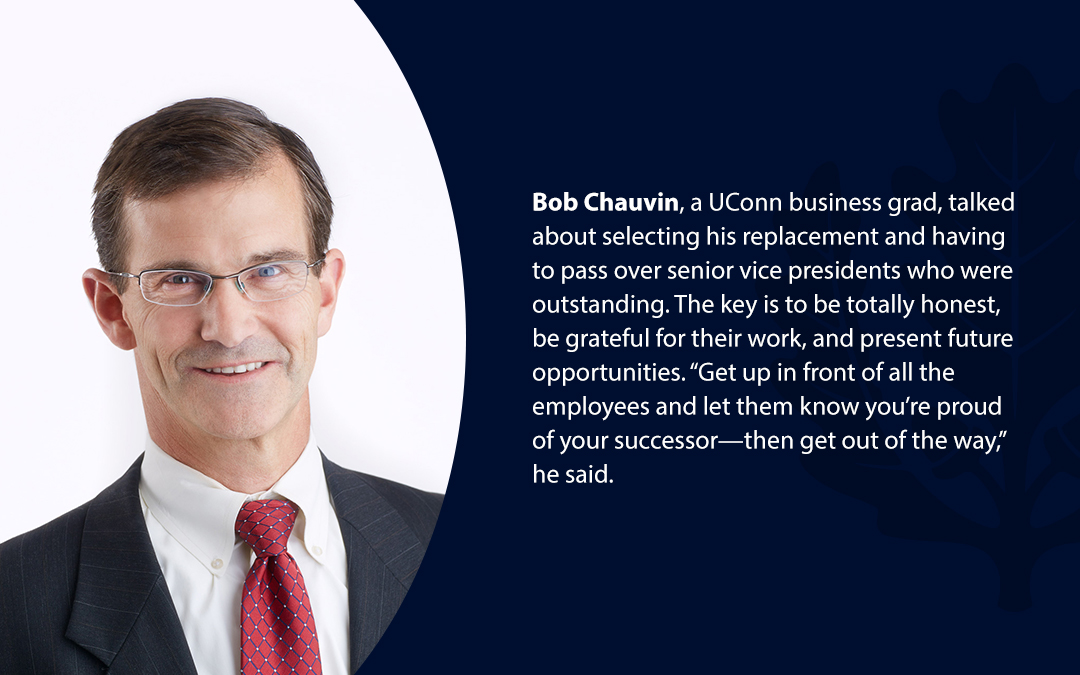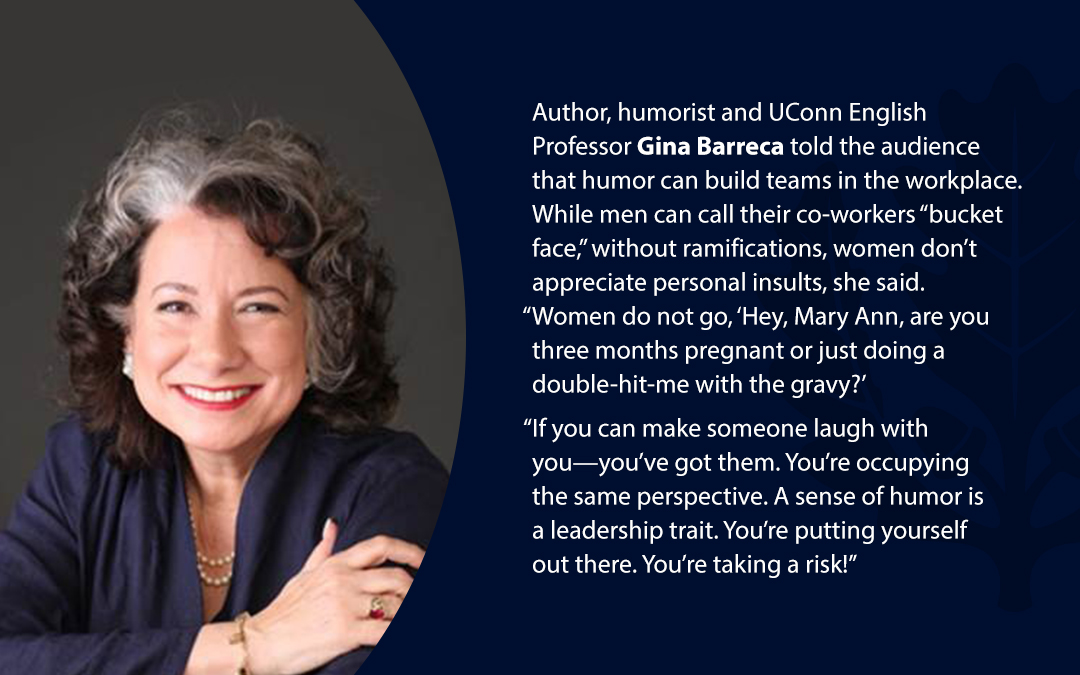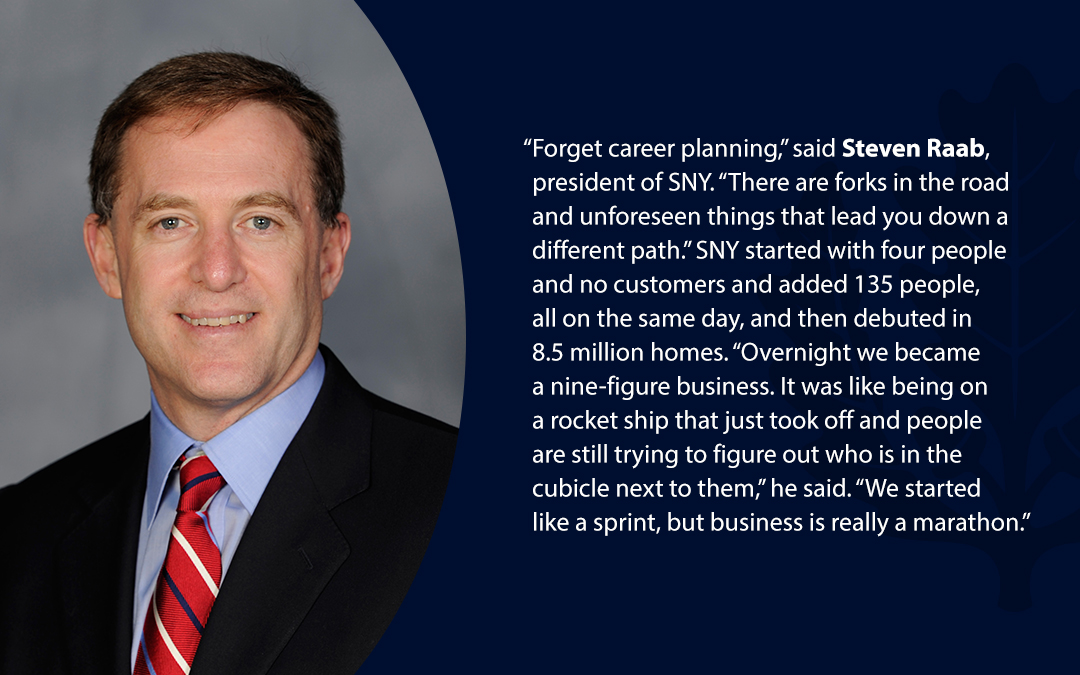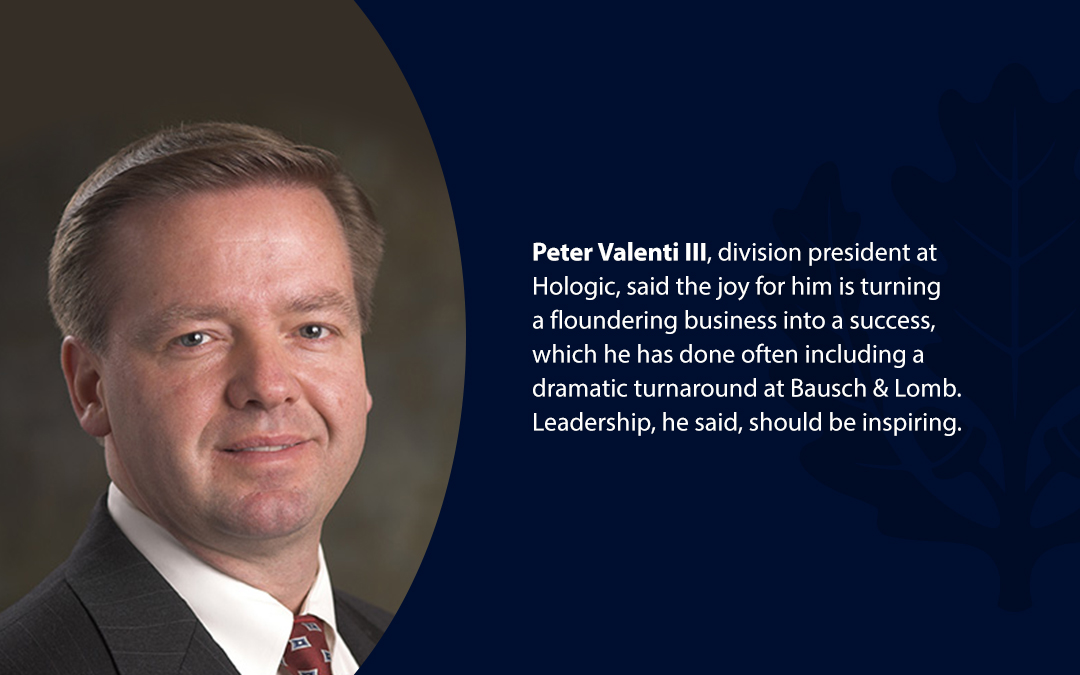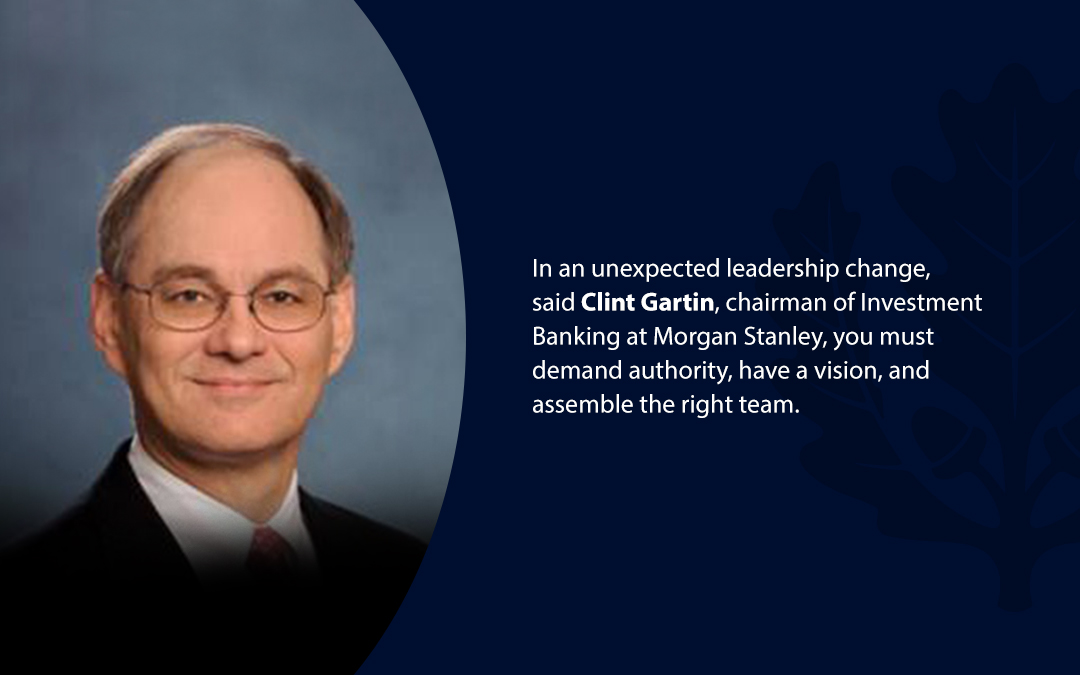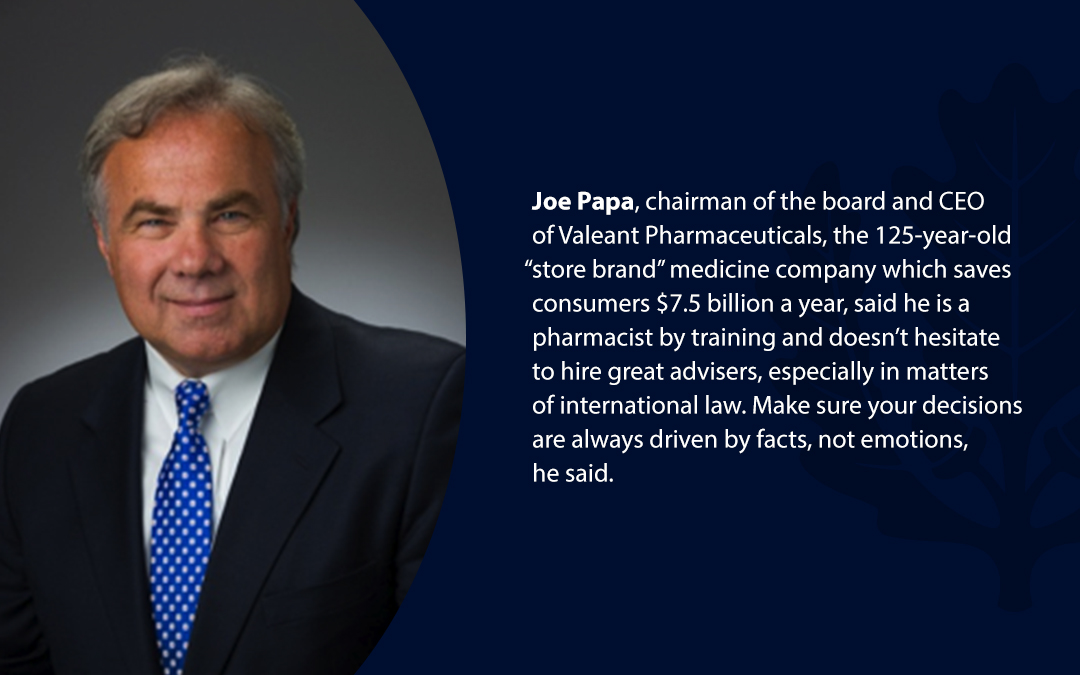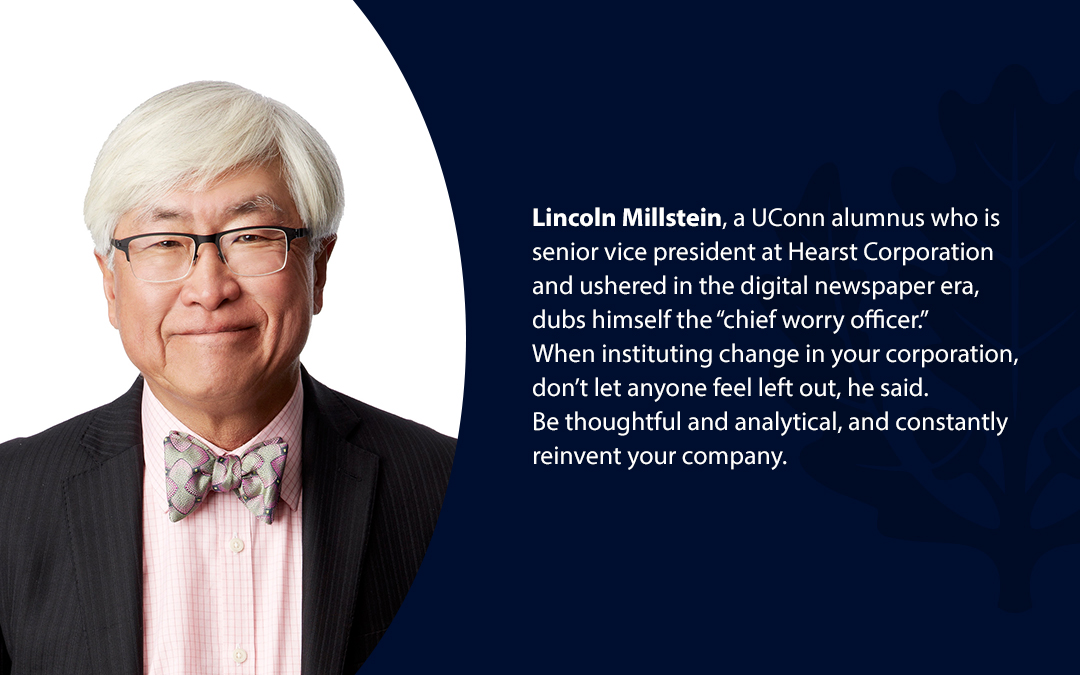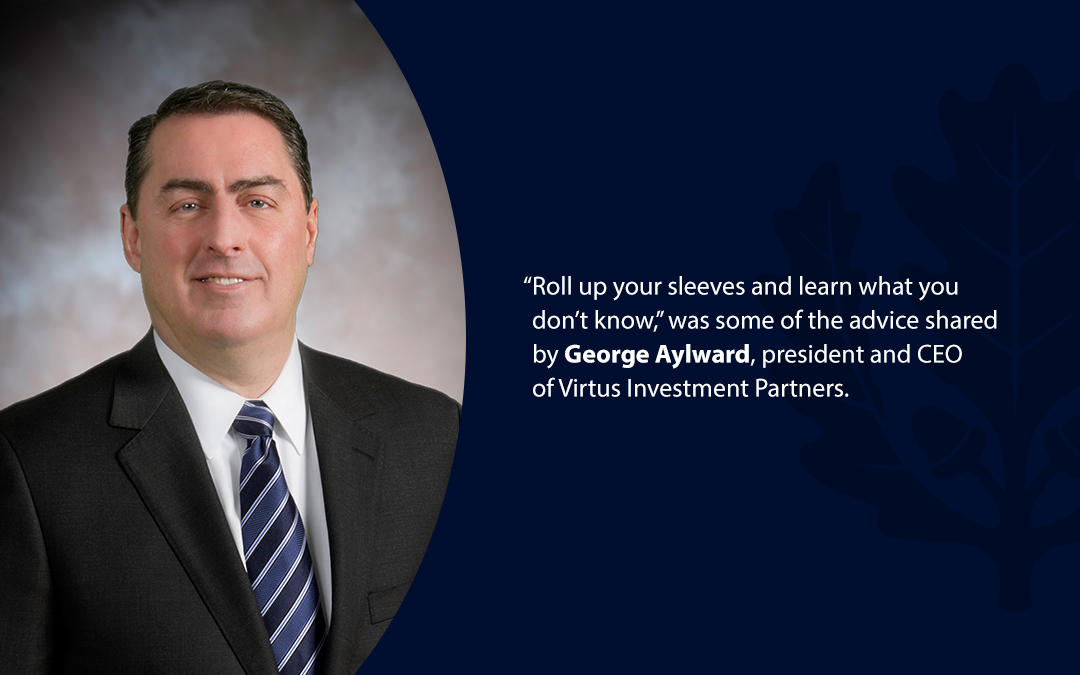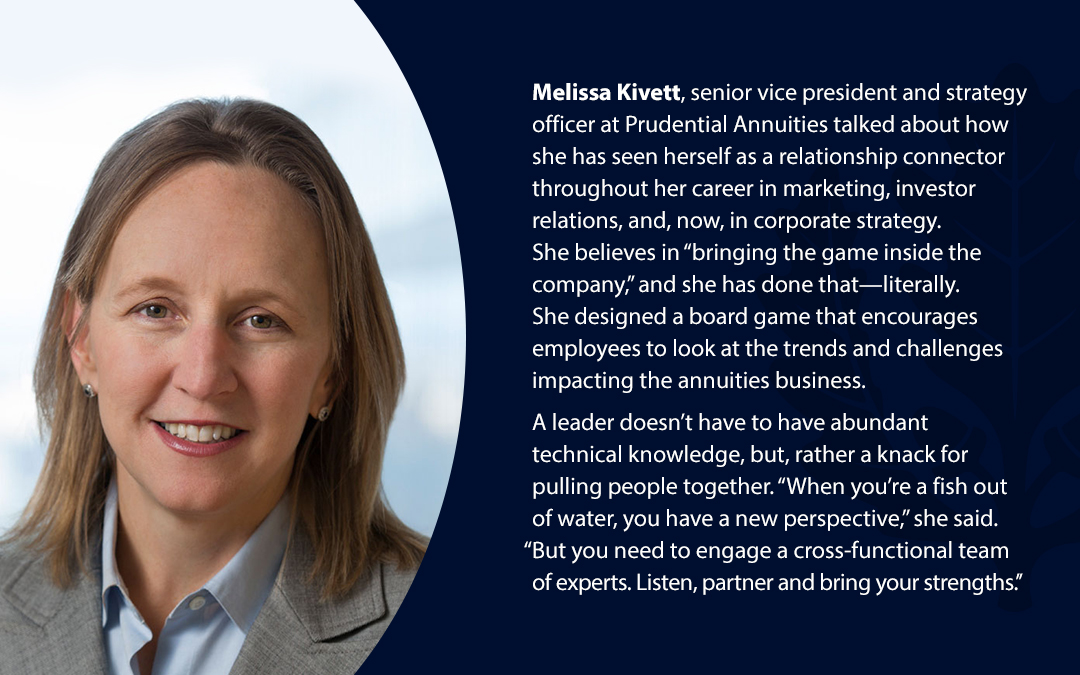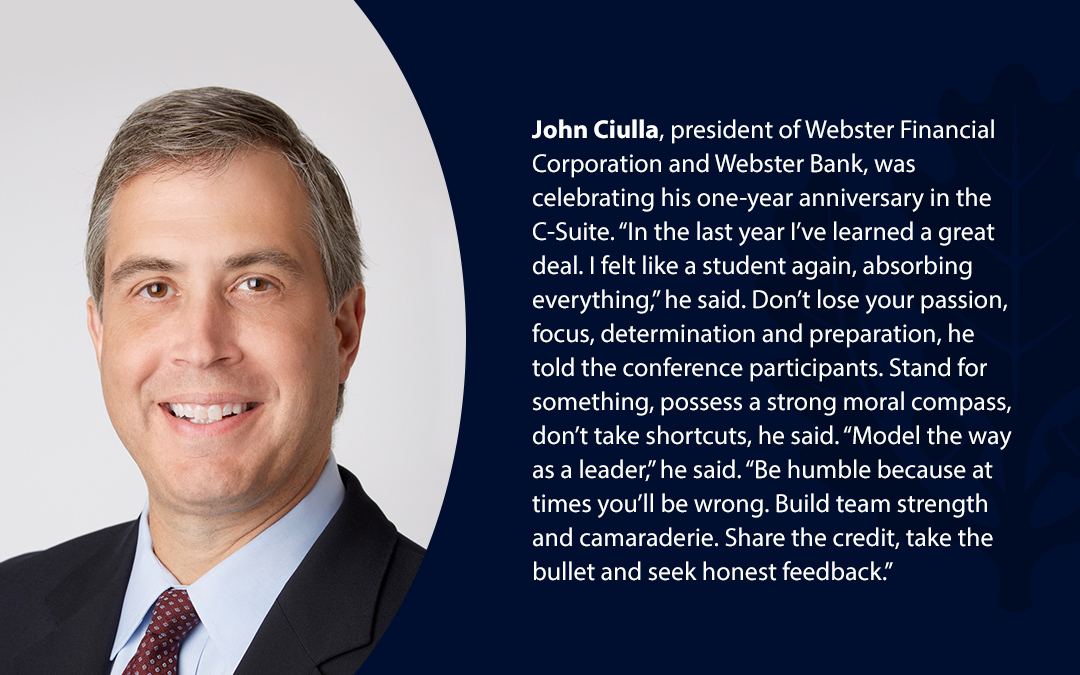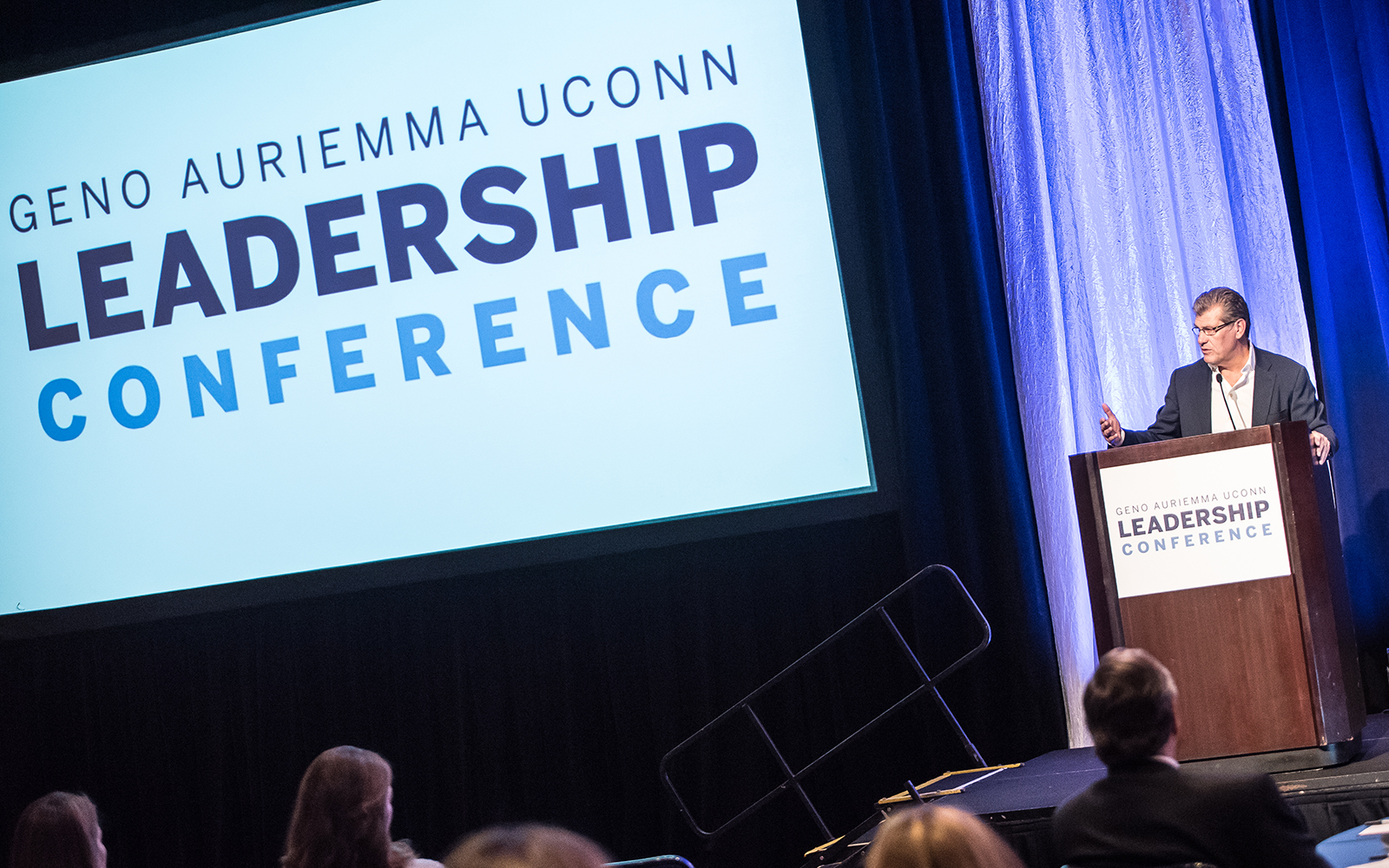
Geno Auriemma UConn Leadership Conference Offers Plethora of Advice for Rising Executives
Transition is one of the most challenging aspects of leadership, but the ability to take charge in times of company turmoil or personal upheaval is the mark of a great leader.
That was the message that some of the world’s top executives, from a vast variety of industries, shared at the third Geno Auriemma UConn Leadership Conference in October at Mohegan Sun.
A ‘Who’s Who’ of Corporate Leaders
The conference panelists included top executives such as Bob Chauvin, the recently retired president of Tyco SimplexGrinnell, a $2.3 billion life-safety business; Lincoln Millstein, senior vice president at Hearst Corporation; Wendy Kahn, CEO and Brand President for Stuart Weitzman luxury shoes and former CEO of fashion-house Valentino; Clint Gartin, chairman of investment banking at Morgan Stanley, whose clients include some of the largest companies in the world; Steven Raab, president of SportsNet New York (SNY), and George Aylward, president and CEO of Virtus Investment Partners.
Panelists discussed everything from building winning transition teams, preparing for the retirement of a CEO, unplanned transitions and the importance of keeping up with industry changes.
Lucy Gilson, the conference’s academic director and the School of Business’ management department head, said the conference is an opportunity to serve not only rising executives, but Connecticut and global businesses in their quest for knowledge and a competitive edge.
“Combined, these leaders have hundreds of years of experience in many different industries and global corporations,” she said. “They’ve enjoyed remarkable success. One of the biggest advantages of our conference is that participants have the rare and invaluable opportunity to hear from and in many cases speak privately with these people, to network with them, and learn from their very personal and powerful experiences.”
Should I Stay or Should I Go?
When the brothers who founded Saatchi & Saatchi, a global communications and advertising agency with 135 offices in 80 countries and a staff of more than 6,000, were ousted by their board, Bob Seelert stepped in. The company was losing money and had taken on too much debt.
“All the clients and the staff were wondering if they should stay or if they should leave,” he said. His every decision could lead to the salvation or demise of the business.
The first thing Seelert, a Manchester, Conn., native did was to identify the company’s strengths, create a credo for his work force, and begin a whirlwind global meet-and-greet with employees and clients to persuade both to put their trust in him and his vision for the company.
“I felt there was no substitute for putting myself out there and saying what I expected to happen,” he said. He created an environment where nothing is impossible, he hired passionate, competitive and restless talent, and retained the quality of the work while restructuring the company’s debt.
Within six months the company was on solid footing and hadn’t lost one customer nor one employee, said Seelert, author of the business advice book, “Start with the Answer.” He told the audience that like the UConn women’s basketball team, they must never slack off or get sloppy.
“There’s no substitute for face-to-face contact in this world,” he said. “Communication is vital. Get out in the field with customers and clients. It shows you care.”
‘Do What You Were Meant To Do’
Lisa Borders, the new president of the Women’s National Basketball Association (WNBA), shared stories of both success and failure.
In 2008, in the midst of a recession, Borders, then president of the Grady Health Foundation—the fundraising arm of Georgia’s largest public hospital and metro-Atlanta’s premier Level 1 Trauma Center–embarked on a $325 million fundraising campaign. When given the assignment, she thought her boss had lost his mind, she said.
But Borders was no stranger to adversity, having been one of first students of color to attend a newly integrated school in Georgia in 1969.
Borders met her goal early and with exclusively local funding. The campaign not only kept the hospital afloat, but also served as a catalyst for economic success in the city.
“True leaders don’t shrink from responsibility when the hard conversation has to held,” she said. “Anybody can cheer when the team is winning. It’s harder to assess problems and correct them.”
Borders, who until recently chaired The Coca-Cola Foundation and was vice president of global community affairs at Coca-Cola, said her career hasn’t been without disappointments.
She ran for mayor of Atlanta in 2009, after serving as president of the City Council, and lost. “I did what real leaders do in the face of adversity. I went to bed for three days and had a pity party,” she said. “I was inconsolable! On the third day, I decided that was enough.”
“Failure is not fatal, it’s feedback,” she told the audience. “I was not supposed to be the mayor. You have to grab on to whatever is going on, and make it the best you can.”
‘When Something is Perfect, How Do You Fix It?’
One of the highlights of the conference was an opportunity to watch UConn Women’s Basketball Head Coach Geno Auriemma coach his players during a live practice and observe his techniques for motivating and training the athletes. Auriemma told the audience how he and his team are also in transition.
Coming off four near-perfect seasons with an unprecedented four NCAA championships in a row, Auriemma has lost three star seniors to graduation and the WNBA.
“Once you’ve created something that everybody wants, what can you create after that that’s even better than the best ever?” Auriemma said. “I have no idea how to do that! But that’s what we’re asked to do by the fans, by SNY, by the players, and the coaching staff. We want to create something that’s better than the best.”
“Part of me is scared to death. Maybe I don’t have the tools to help my players get there,” he said. “But together we’ll find out if we can do it or not.”
Fear of Failure—and Perseverance
Although each executive had a different background and experience, many similar themes resonated in their talks. They spoke of the pursuit of thorough preparation, a relentless, face-to-face communication plan, humility and the ability to listen, the importance of delegation, the need to know and respect everyone within your company, and the crucial task of monitoring your industry for subtle warning signs of pending change.
Most spoke of a time when they failed, or feared failure, and how that motivated them to re-group and persevere. They answered a broad range of questions, from how long it takes them to evaluate an employee to what they do to reduce stress.
‘It’s Important to Keep Yourself Sharp’
Dawn Morris, executive vice president and chief marketing officer at Webster Bank, attended the conference to expand her knowledge. As a graduate of the U.S. Military Academy at West Point, Morris said she has high expectations for leaders.
“It’s important to keep yourself sharp, incorporate new lessons, and to improve all the time,” she said. “The speakers gave advice that was all very ‘action-able.’ While I was listening, I thought, ‘Yes! I can do that!'”

